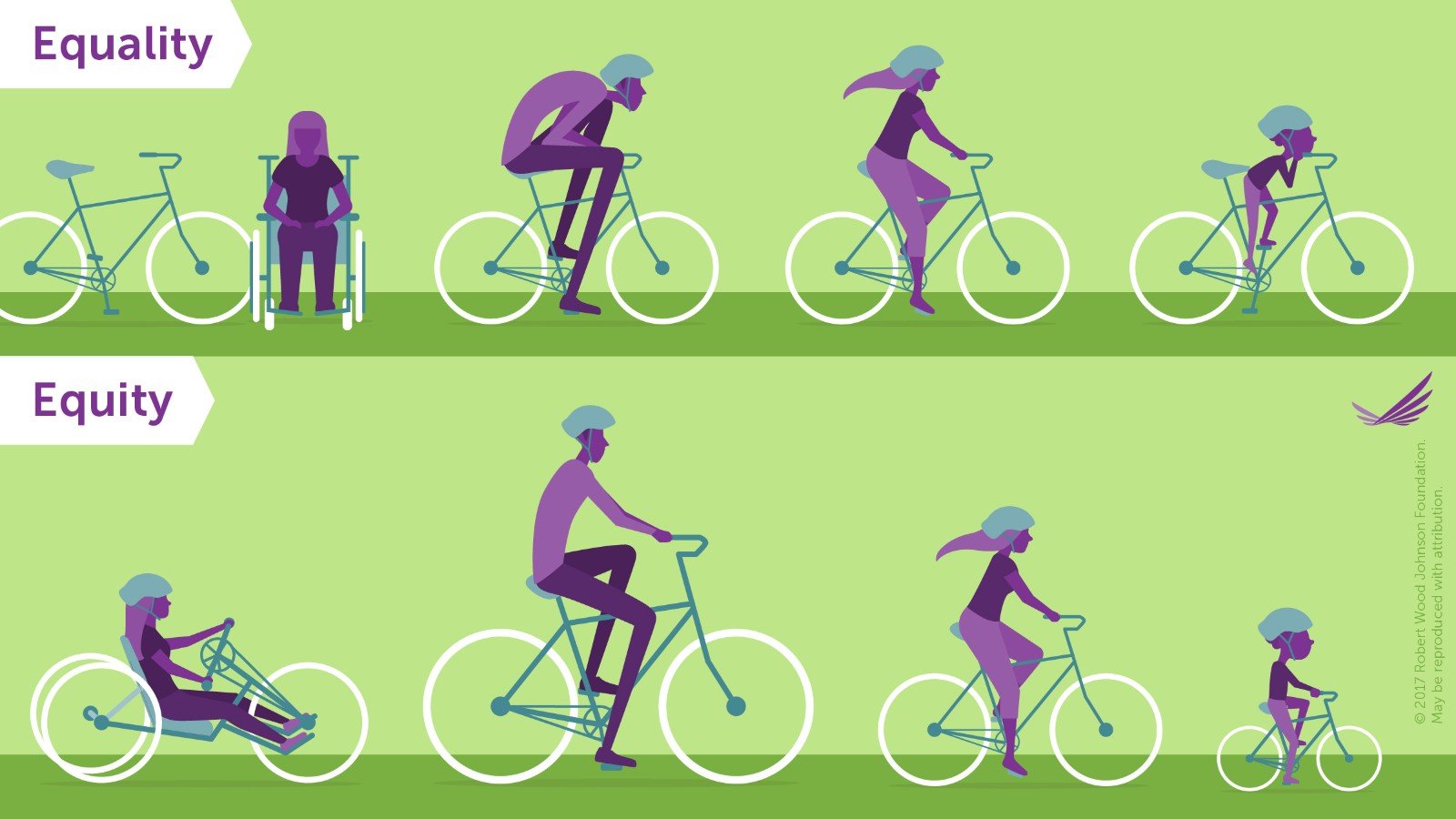Why equity matters: fostering fairness in in the workplace
In the pursuit of fostering inclusive workplaces, organisations often adopt different approaches, reflected in the terminologies they use, such as “equality” or “equity”. While these concepts both aim to promote fairness, there's a crucial distinction that significantly impacts outcomes, including for groups like vegans in the workplace.
Equality in the workplace
Equality, in its simplest form, advocates for treating everyone the same, regardless of their unique circumstances or needs. However, this approach fails to acknowledge the inherent disparities and barriers that different individuals or groups face. For instance, in the workplace, providing the same resources or opportunities to all employees may not adequately address the specific needs of every individual, leading to feelings of exclusion or marginalisation.
For example, you want to reward staff for a record-breaking week, so you order pizzas for lunch on a Friday. You order a range of different toppings to try and ensure there’s something for everyone, including vegetarian team members, but there aren’t any vegan options. You’ve given everyone the same reward, but when the pizzas arrive the vegan feels disappointed because they can’t enjoy the celebration with their colleagues. Worse, they may even feel singled out as the only person who isn’t being rewarded.
Equity in the workplace
On the other hand, equity focuses on giving everyone what they need to succeed, recognising and addressing these differences. For vegans in the workplace, equity means ensuring fair access to suitable food options, accommodating ethical beliefs, and fostering an environment where all employees feel valued and respected. By prioritising equity, organisations demonstrate a commitment to understanding and meeting the unique needs of all employees, including vegans.
For example, before placing your pizza order, you check whether the restaurant can accommodate the various dietary needs of your team. This should include vegans, but you also consider whether you need to order any gluten-free, vegetarian or halal options. By ordering a range of pizzas that the whole team can enjoy, you ensure that everyone on the team feels rewarded alongside their colleagues.
Incorporating equity into the workplace culture extends beyond addressing the needs of vegans. It involves promoting understanding and acceptance of diverse identities, accommodating individual differences, and creating an environment where everyone feels empowered to contribute their best. By embracing equity, organisations not only honour the unique experiences and contributions of all employees but also foster a culture of fairness, respect, and belonging.
How does this affect our work?
In today's diverse workplace, recognising and accommodating the unique needs of individuals, including vegans, is essential for fostering a culture of inclusivity and fairness. By prioritising equity over equality, organisations can ensure that every employee has the opportunity to thrive and contribute their best, ultimately leading to a more vibrant and successful workplace.
In recognition of the importance of equity in the workplace, we refer to “equity” rather than “equality” in our materials, unless we are referring to legislation which uses the word “equality”.
Reproduced with permission of the Robert Wood Johnson Foundation, Princeton, N.J.

